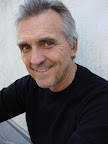
A few thoughts from Peter Galman on his preparation for the role of Shylock in ASC's upcoming production of The Merchant of Venice, opening February 21st:
Shylock in the Merchant of Venice is the voice of oppressed, the trod upon, the rejected, the categorized, the object of scorn that all striving humankind can relate to. Somewhere deep inside us comes a voice that cries out in defense of ourselves when victimized by hatred or even when slighted for one more preferred. It comes from the same place in us that wants a second chance, for the tables to be turned, for a second opinion, for an apology, for vindication. Shylock is presented with such an opportunity, and we see him with it right at the beginning, at the introduction of his character in the play. He senses the rich opportunity of that moment and revels in it. It's what attracted me to him in the first place. This voice compels hearing and demands attention.
"Like my fellow Jews, I may be confined to a ghetto and relegated to the un-Christian business of moneylending, and my words are steeped in deep resentment of my plight, but my spirit yearns to walk the earth as one of God's creatures, in communion with my fellow human beings."

What I am discovering as I go deeper into the development of character is my dual nature. Shakespeare may not have had much experience with Jewish idiosyncrasies, but in the very first scene he hits upon one of the most typical: that of saying one thing but meaning something else! This strikes to the heart of the Jewish stereotype. After I vent to the offer of Antonio all the bilious reasons why I would reject a transaction with the Christian, I do an about face and confide I would be friends and have Antonio's love. That's just the start of exposition to my dual nature. I am torn by a passion, by a conviction that compels me to "use or be used". I have a choice all the way down to the lines at the end and I think if I stay with that dynamic throughout it will make for a compelling characterization.
"Like my fellow Jews, I may be confined to a ghetto and relegated to the un-Christian business of moneylending, and my words are steeped in deep resentment of my plight, but my spirit yearns to walk the earth as one of God's creatures, in communion with my fellow human beings."
What I am discovering as I go deeper into the development of character is my dual nature. Shakespeare may not have had much experience with Jewish idiosyncrasies, but in the very first scene he hits upon one of the most typical: that of saying one thing but meaning something else! This strikes to the heart of the Jewish stereotype. After I vent to the offer of Antonio all the bilious reasons why I would reject a transaction with the Christian, I do an about face and confide I would be friends and have Antonio's love. That's just the start of exposition to my dual nature. I am torn by a passion, by a conviction that compels me to "use or be used". I have a choice all the way down to the lines at the end and I think if I stay with that dynamic throughout it will make for a compelling characterization.

I am now reading of Shylocks played in past productions, and it amazes me how each, whether it be Edmund Kean, or Sir Tree, or Sir Henry Irving, or Jacob Adler of the great Yiddish Theater in the early 20th Century, becomes a statement of the way to play him as to appeal to the audience of their respective theatres. Irving was all dignity in the face of indecency. Adler edited the play so that he was on stage half the time, and was patriarchal, biblical, a tower of strength, patience amidst suffering. A response to the opinion of some that the play is anti-semitic? Perhaps, but Shakespeare's Jew is loaded with humanity and needs no revision to be given "size". Others may make the argument that Shylock's actions are not true to the Jewish identity, but Shakespeare is not writing to an ideal, but to the idea that we are alike and resemble each other in action within a given circumstance -- "to the time and pressure", one of his great themes.



No comments:
Post a Comment